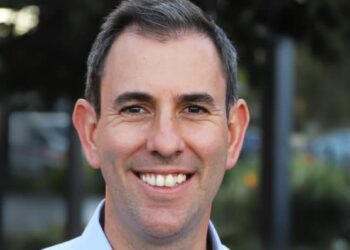In Tuesday night’s federal budget, the superannuation sector consisted of only a small portion of the government’s focus, with many announcements already made public in the previous weeks.
The Payday Super Obligations to be introduced from 1 July 2026 were welcomed by the SMSF and superannuation sector, as was the additional resourcing announced to enforce superannuation compliance.
And although the revised down non-arm’s length income (NALI) proposal provided some relief, many in the sector feel there is still a long way to go.
In October 2019, the previous government made changes to the Income Tax Assessment Act 1997 to impose NALI taxes on net revenue where superannuation funds had incurred non-arm’s length expenditure (NALE). That legislative amendment has been the subject of much comment and advocacy from industry organisations.
The budget has clarified some elements of how NALE will operate, namely that APRA-regulated funds have been entirely excluded from the measures, that the measures will not apply to expenditure that occurred prior to the 2018–19 financial year; that small APRA funds and SMSFs will continue to be subject to the NALE rules; and that income to which non-arm’s length income taxation will apply specifically excludes superannuation contributions.
Additionally, in relation to specific investment, if expenditure is not incurred on an arm’s length basis, then the net income arising from the investment will be taxed at the NALI tax rate of 45 per cent.
Where general expenditure has not been incurred on arm’s length terms, then an amount equal to double the value of the general expense will be deemed to be non-arm’s length income.
SMSFA CEO Peter Burgess said although this proposal is an improvement, a factor-based approach is neither a practical nor desirable solution for the sector.
“It will require SMSF trustees to determine if a general expense has been undercharged and by how much,” he said.
“This may sound like a simple task, but the reality is in a dynamic market such as the SMSF sector there can be significant variation in the services provided, particularly when it involves related entities, so determining a ‘market rate’ can be difficult, costly, and often subjective.
“It remains our view that the 2019 amendments to the NALI rules were overreach and the mischief they were intended to address has already been addressed by previous ATO guidance and tax determinations.”
Accountancy firm BDO said it questions the policy rationale for excluding APRA-regulated funds from the measure entirely, while the Financial Advice Association of Australia said although there is now more clarity around the issue, the changes are a “little surprising”.
FAAA CEO Sarah Abood said limiting the income that is taxable as NALI to twice the level of a general expense, and exempting any that occurred before 2018–19, was not what was expected following consultation.
“Financial advisers will need to carefully consider the impact on any self-managed super fund clients who are affected,” she said.
“On both NALI and the pre-announced super changes, we look forward to engaging with Minister Jones and communicating more detail on these changes to our members when it is available.”
The proposed $3 million super tax came under fire from the majority of associations due to the lack of specific detail and the concern that the consultation process seemed to be ignored.
Ms Abood said the FAAA remains concerned about the lack of indexation for the higher tax rate on super balances above $3 million, and the methodology for the calculation of the taxable income.
BDO said the government’s intention to introduce a tax on unrealised gains on super funds will be the first of its kind.
“No other entity in the tax system has ever had to pay tax on unrealised gains before, and this could set a precedent for the taxation of other entities in the future,” it stated.
“With the inevitable increase in superannuation balances during the passage of time, more super fund members will be caught.”
Katie Timms, RSM Australia national director, superannuation and SMSF said despite public consultation on how the changes could be implemented only concluding on 17 April, the budget papers have already factored in $2.3 billion in additional tax receipts in the first full year of receipts collection in 2027–28.
“There is no explanation for how these figures were derived,” Ms Timms said.
“These reforms, which are due to commence from 1 July 2025, have spooked retirees and business owners, including small business and farmers with self-managed super funds who could be captured by the changes.
“People are already re-thinking investment decisions, and many are questioning whether they want more money in superannuation given the lack of indexation means younger people may end up taxed.
“The super cap reforms clearly point to the Australian government’s views on the purpose of super – that it is not a wealth creation system – signalling more reforms are likely to come.
“The super cap changes were announced in February, despite the government only recently completing another round of public consultation on defining and enshrining the objective of superannuation in law in order to improve accountability and transparency in the development of superannuation policy. This should have been the government’s first order of business if they want funds, businesses and individuals to have confidence in the system.”


